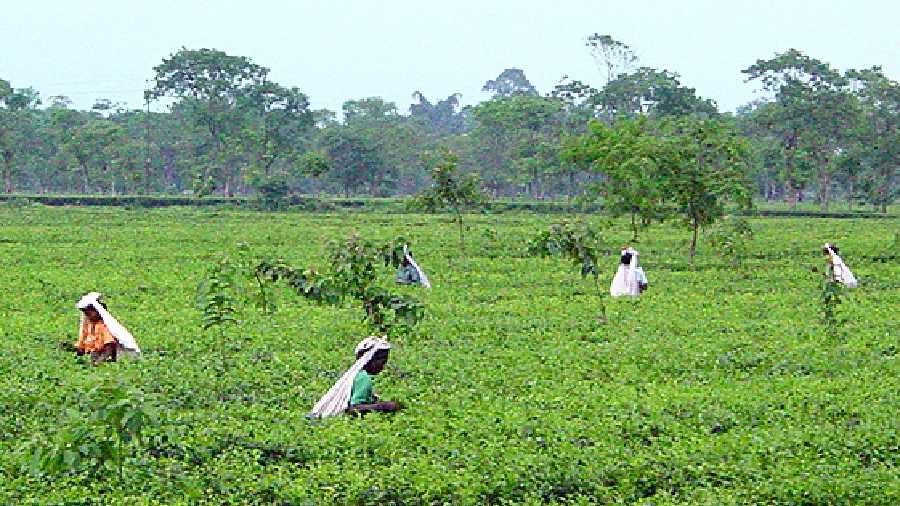Anit Thapa, the chief executive of Gorkhaland Territorial Administration, claimed on Thursday that the state government would immediately start a survey to grant land rights to tea garden workers, a development that could have a major impact on the politics of the region.
“Speaking to the chief minister yesterday (Wednesday), I mentioned the longstanding demand of tea workers that they be given land rights and she gave a positive assurance. Today (Thursday), I received information that the state would start the process to conduct a survey from tomorrow (Friday),” said Thapa over the phone from Calcutta.
Tea estates started coming up in the 1850s in the hills. Generations of workers live in the gardens. They do not have land rights, though their jobs are handed over to the next of kin.
The state government leases out garden land to tea companies for a period of 30 years. For almost two decades now, all hill political parties are demanding land rights for tea workers.
In Darjeeling hills, the tea industry is spread across 17,500 hectares. In all, 55,000 permanent and 15,000 temporary workers serve in 87 hill tea gardens.
“Almost 70 per cent of hill people do not have land rights. which makes it a major issue in politics here,” said a leader of BGPM that Thapa heads.
Political observers pointed out that the identity issue, which is at the core of politics in the hills, is also related to land rights.
“Darjeeling’s identity politics of having a homeland also finds an echo in land rights. The fact that most community members don’t have land rights in a place they are staying for centuries has been in the back of the minds of hill people,” said an observer.
How this development plays out is likely to have a major bearing on panchayat polls here.
“It is not clear if the survey will be done in Terai and the Dooars tea belts as the state has begun a free housing scheme (Cha Sundari) for tea workers. The process to hand over houses with rights to land has started,” said a tea trade union leader.
Representatives of the planters' fraternity said tea garden land across India falls under the Tea Act of 1953, a central act. “It allows leasing out of land for tea gardens across the country,” said a planter, adding they have to wait and watch how the state works to grant land rights to tea workers.










